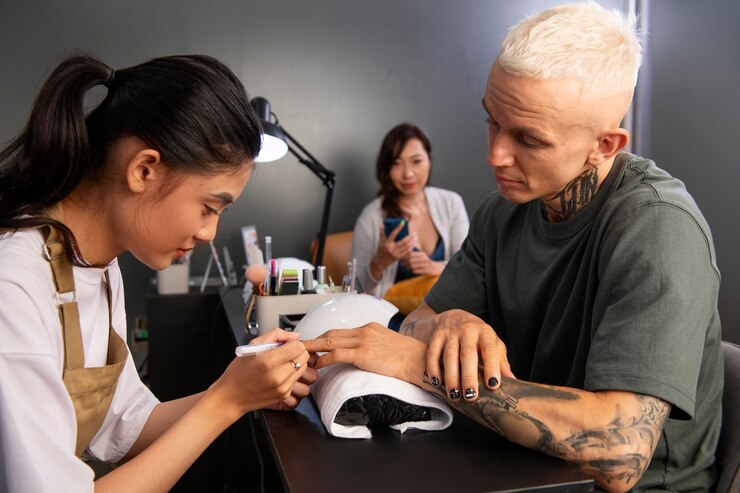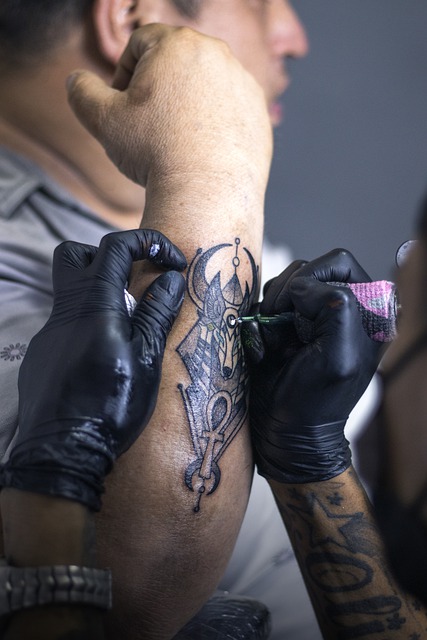Tattooing is an art that requires a lot of dedication, skill, and patience. It is not just about making designs on the skin, but also about creating a piece of art that is personal to the client. However, no matter how skilled a tattoo artist is, there is always room for improvement. In this article, we will explore the importance of believing in your tattoo skills but never stopping to improve. We will discuss the benefits of continuous learning, the importance of practice, and the significance of feedback from peers and clients.
Introduction
Tattooing has been a part of human culture for centuries, and it has evolved into an art form that is both intricate and beautiful. For tattoo artists, it is not just a job, but a passion that requires a lot of skill and dedication. In this article, we will explore the importance of believing in your tattoo skills but never stopping to improve.
The Importance of Believing in Your Tattoo Skills
Believing in your tattoo skills is the first step towards becoming a successful tattoo artist. It means having confidence in your abilities and being proud of your work. Believing in yourself will help you take on new challenges and push yourself to become better. When you believe in yourself, you can create amazing designs that will inspire others.
The Benefits of Continuous Learning
Continuous learning is essential for tattoo artists who want to improve their skills. It involves keeping up-to-date with new techniques, tools, and styles. Learning new things will help you become more creative and versatile in your work. You can attend workshops, seminars, or online classes to gain new knowledge and skills. By continuously learning, you can develop your own unique style that sets you apart from other artists.
The Importance of Practice
Practice is the key to becoming a successful tattoo artist. It is through practice that you can perfect your skills and become more confident in your work. Practice also helps you develop muscle memory, which is crucial in creating smooth lines and consistent shading. It is recommended that tattoo artists practice on synthetic skin or fruits before moving on to real skin.
The Significance of Feedback from Peers and Clients
Feedback is an essential part of the learning process. It helps you identify your strengths and weaknesses and provides you with insights on how to improve. Feedback from peers and clients can be both positive and negative, and it is important to take both into consideration. Positive feedback can boost your confidence, while negative feedback can help you identify areas for improvement.
How to Improve Your Tattoo Skills
Improving your tattoo skills requires dedication, hard work, and patience. Here are some tips on how to improve your skills:
- Attend workshops, seminars, or online classes to learn new techniques and styles.
- Practice regularly to perfect your skills.
- Seek feedback from peers and clients to identify areas for improvement.
- Study the work of other tattoo artists to gain inspiration and knowledge.
- Experiment with different tools, styles, and techniques to develop your unique style.
Conclusion
In conclusion, believing in your tattoo skills is crucial for becoming a successful tattoo artist. However, it is equally important to never stop improving. Continuous learning, practice, and feedback from peers and clients are essential for improving your tattoo skills. Remember, tattooing is an art form that requires dedication, skill, and patience. Keep pushing yourself to become better, and you will create amazing designs that inspire others.
FAQs
Can anyone become a tattoo artist?
- Yes, anyone can become a tattoo artist with dedication and hard work.
How long does it take to become a tattoo artist?
It can take several years of practice and training to become a skilled tattoo artist.
Can anyone become a great tattoo artist?
- Becoming a great tattoo artist requires a combination of natural talent and dedication to improving one’s craft. While some individuals may have an innate ability to create beautiful designs and execute them with precision, this is not always the case. Many successful tattoo artists have worked tirelessly to hone their skills over years or even decades, constantly seeking out new techniques and approaches to improve their work. If you have a passion for tattooing and are willing to put in the time and effort required, there’s no reason why you can’t become a skilled and respected artist in your own right.
How can I stay motivated to continue improving my tattoo skills?
- Tattooing can be a challenging and competitive field, and it’s not uncommon to face obstacles or setbacks along the way. However, staying motivated and committed to improving your skills is key to achieving success in the long run. One way to stay motivated is to set clear goals for yourself, such as mastering a new technique or completing a challenging design. Additionally, it can be helpful to seek out feedback and constructive criticism from other artists or clients, as this can help you identify areas where you can improve. Finally, remember to celebrate your successes along the way, no matter how small they may seem – this can help keep you energized and focused on achieving your goals.
What are some common mistakes that new tattoo artists make, and how can I avoid them?
- As with any skill, there are many common mistakes that new tattoo artists can make when starting out. One of the most common is using the wrong type of needle or ink for a particular design, which can result in blurry lines or uneven shading. Another common mistake is failing to properly sterilize equipment, which can lead to infections or other health hazards for both the artist and the client. To avoid these and other mistakes, it’s important to invest in high-quality equipment and supplies, and to stay up-to-date on best practices for sterilization and hygiene. Additionally, it can be helpful to seek out mentorship or training from more experienced artists, as they can provide valuable guidance and advice based on their own experiences.


